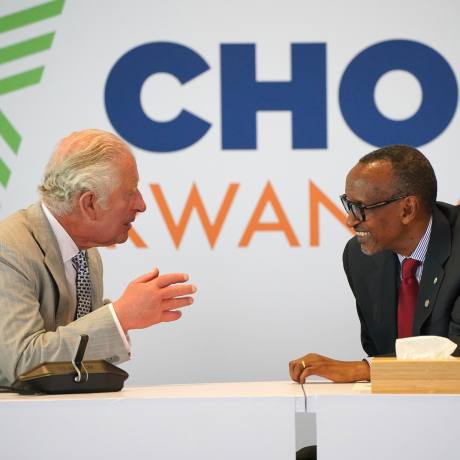- About the Commonwealth
- The King and the Commonwealth
- Origins of the Commonwealth
- Commonwealth Governance
About the Commonwealth
After 75 years of its existence, the Commonwealth is a remarkable organisation which remains a major force for change in the world today.
The Commonwealth is a voluntary association of 56 independent countries, almost all of which were formerly under British rule.
The origins of the Commonwealth come from Britain's former Empire. Many of the members of the Commonwealth were territories which had historically come under British rule at various times by settlement, conquest or cession. The administration of such colonies evolved in different ways, to reflect the different circumstances of each territory.
After achieving independence, India was the first of a number of countries which decided that, although they wished to become republics, they still wanted to remain within the Commonwealth.
To reconcile these aims, the 1949 London Declaration recognised King George VI as Head of the Commonwealth. Following his death, the Commonwealth leaders recognised Queen Elizabeth II in that capacity.
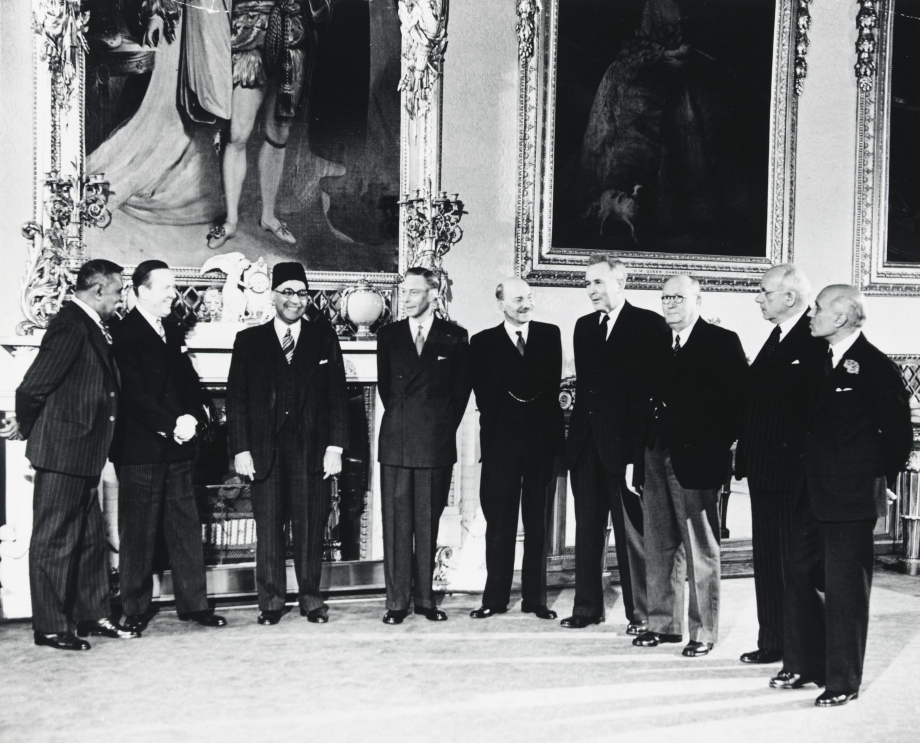
The role of Head of the Commonwealth is not hereditary, however following an unanimous decision by Commonwealth leaders in 2018, following the death of Queen Elizabeth II, His Majesty The King became Head of the Commonwealth. This is an important symbolic and unifying role. As Head, His Majesty personally reinforces the links by which the Commonwealth joins people together from around the world.
The King and the Commonwealth
The King is Sovereign of 14 Commonwealth realms in addition to the UK. His Majesty is also Head of the Commonwealth itself, a voluntary association of 56 independent countries.
This is an important symbolic and unifying role. As Head, The King personally reinforces the links by which the Commonwealth joins people together from around the world.
It seems to me that in many ways the diversity to be found within the Commonwealth family is perhaps its greatest strength, for, paradoxically, through our shared values and experience we are united and can draw great strength.
The King, then The Prince of Wales, at a Reception for Commonwealth Foreign Ministers in 2019
The Commonwealth’s member nations span the globe and together are home to one-third of the world’s population, across all regions, including 1.5 billion people under the age of thirty. This remarkable youth population holds what The King has described as ‘extraordinary potential’ for the future, as the Commonwealth member nations work towards common goals.
One of the ways of strengthening these connections is through regular Commonwealth visits.
Commonwealth visits
The King, Queen and other members of the Royal Family are regular visitors to the Commonwealth.
Since 1969, His Majesty has conducted 120 official visits across 75 tours to 43 Commonwealth nations, most recently Kenya in late 2023, where The King and Queen's programme included meeting Kenyan World War Two veterans at Kariokor Commonwealth War Graves Cemetary, visiting Sheldrick Wildlife Trust Elephant Orphanage and learning more about young entrepreneurs and their tech projects in the country's 'Silicon Savannah'.
In 2022 The King - then The Prince of Wales, visited Rwanda with The Queen - then The Duchess of Cornwall - to attend the Commonwealth Heads of Government Meeting. Their Majesties also visited Nyamata Church Genocide Memorial and Mbyo Reconciliation Village during the tour.
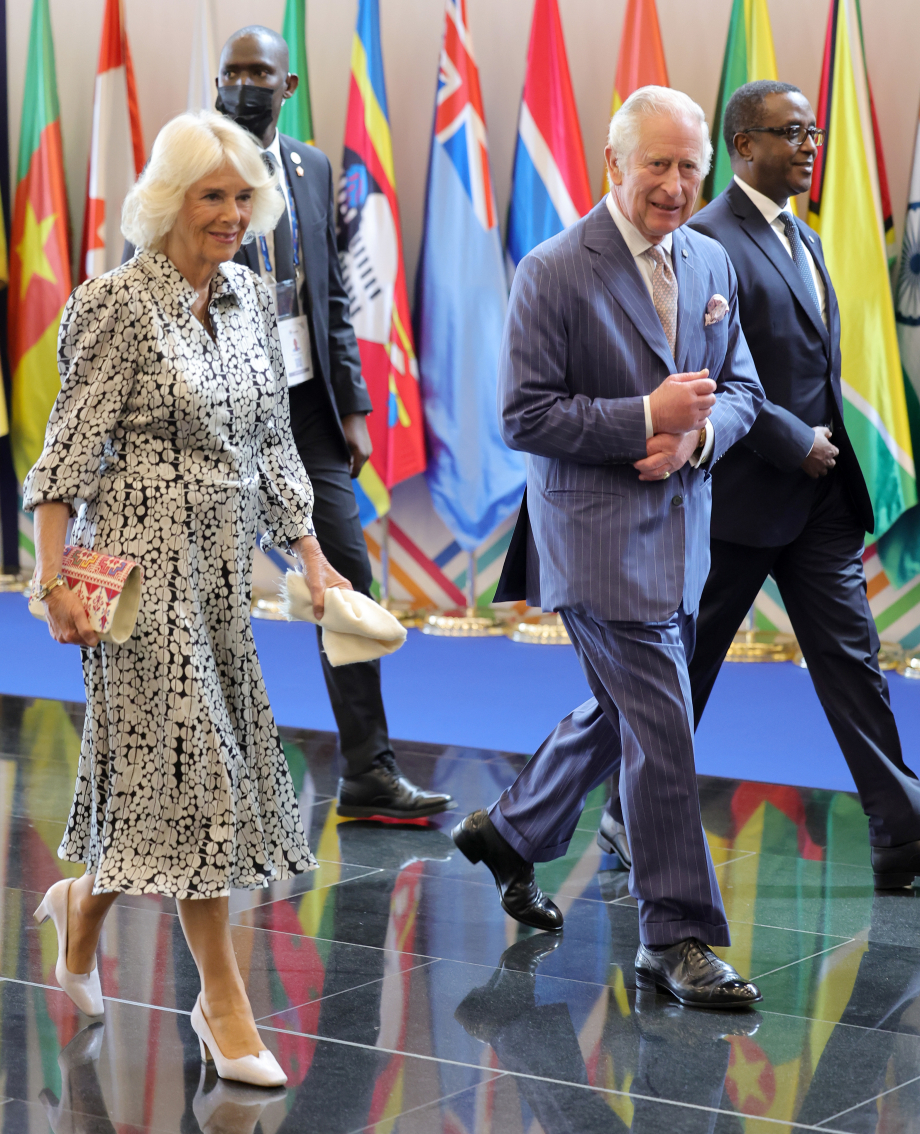
Keeping in touch
The King keeps in touch with Commonwealth developments through regular contact with the Commonwealth Secretary General and her Secretariat. This is the Commonwealth's central organisation. Based in London, it co-ordinates many Commonwealth activities. His Majesty also has regular meetings with Heads of Government from Commonwealth countries.
Commonwealth Day
Since 1977, Commonwealth Day has been celebrated throughout the Commonwealth on the second Monday in March. An inter-denominational service is held in Westminster Abbey, followed by a reception hosted by the Commonwealth Secretary General.
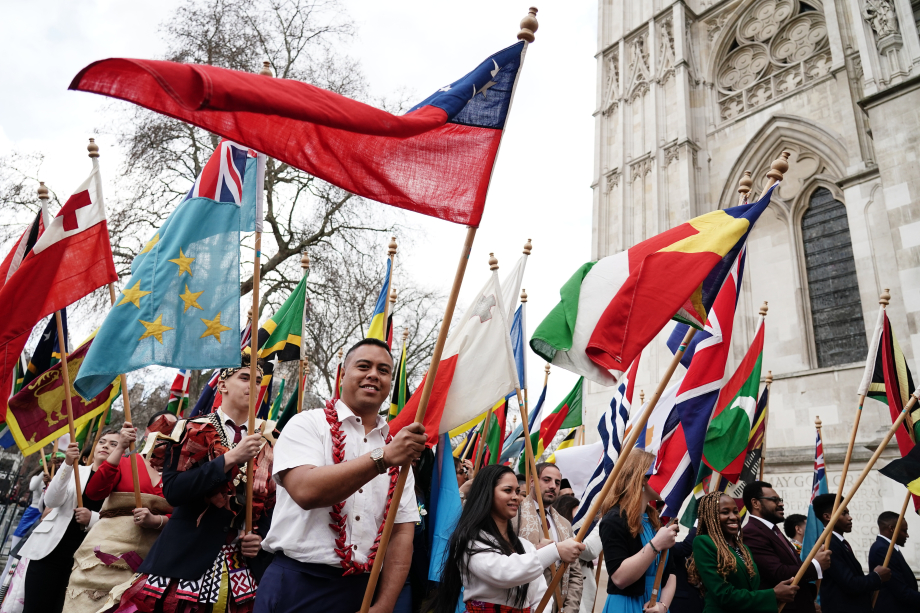
Following annual tradition, on 13 March 2023, The King, along with The Queen and other members of the Royal Family, attended the Commonwealth Day service at Westminster Abbey. His Majesty delivered his first Commonwealth Day message as Head of the Commonwealth during the service and spoke of the Royal Family’s commitment to the international Commonwealth family.
The King and Queen also hosted a Commonwealth Reception at Buckingham Palace.
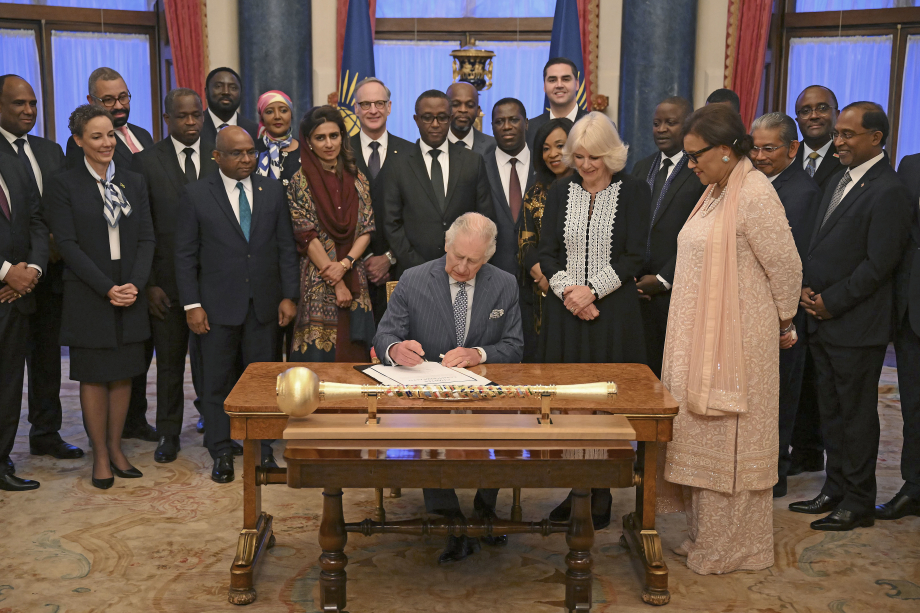
Ahead of the reception, The King signed the Commonwealth Charter to mark its 10th Anniversary. The Charter, with its 16 core values, expresses the commitment of member states to the development of free and democratic societies and the promotion of peace and prosperity to improve the lives of all the people of the Commonwealth.
Origins of the Commonwealth
The origins of the Commonwealth lie in Britain's former colonial empire.
Until 1949, the member states of today's Commonwealth were united through common allegiance to the British Crown.
After the Second World War, many countries sought their independence. Soon after attaining independence in 1947, India declared that it wished to adopt a republican constitution, but also wanted to remain within the Commonwealth.
This was accepted in the London Declaration agreed at the Commonwealth Heads of Government Meeting in 1949, provided that India accepted King George VI as "the symbol of the free association of the independent Member Nations and as such Head of the Commonwealth".
Over the next two decades, British rule ended in many parts of Africa, Asia, the Caribbean, the Mediterranean and the Pacific.
With a few exceptions (such as Myanmar, formerly known as Burma), the newly independent countries joined the Commonwealth and recognised King George VI and, following his death, Queen Elizabeth II, as Head of the Commonwealth. The King is now Head of the Commonwealth.
The London Declaration made it possible for the Asian and African states of the former Empire, most of which wished to become republics, to remain within the Commonwealth upon attaining independence. This has led to the development of the contemporary Commonwealth.
The Commonwealth symbolises the transformation of the Crown from an emblem of dominion into a symbol of free and voluntary association. In all history this has no precedent
Queen Elizabeth II, speaking in 1977
Member countries of the Commonwealth can therefore have different constitutions: a republic with a president as Head of State (such as India and South Africa), an indigenous monarchy (for example, Lesotho, Malaysia, Swaziland and Tonga), a sultanate (Brunei), an elected Paramount Chieftaincy (Western Samoa), or a realm recognising The King as Sovereign (for example the United Kingdom, Canada, Australia and Barbados).
Whichever form their constitution takes, member countries all recognise The King as Head of the Commonwealth.
Today, the Commonwealth continues to play an important social and political role in the world, as a major association of countries.
The term 'Commonwealth' was first used by British Liberal politician Lord Rosebery in Adelaide, Australia, in 1884. During a famous speech, he referred to the British Empire as 'a Commonwealth of Nations'.
Commonwealth Governance
Since 1971, the Commonwealth Heads of Government Meeting (CHOGM) has been held every two years, at locations throughout the Commonwealth.
The Head of the Commonwealth present in the host country, during which they would have a series of private meetings with the Commonwealth countries’ leaders, attends a CHOGM reception and dinner, where they would make a speech.
In 1959, Queen Elizabeth II made available the former Royal Palace of Marlborough House for Commonwealth purposes, and in 1965 it became the headquarters of the newly formed Commonwealth Secretariat.
His Majesty keeps in touch with Commonwealth developments through regular contact with the Commonwealth Secretary-General and her Secretariat. The King also has regular meetings with Heads of Government from Commonwealth countries.
In December 2012, Commonwealth leaders adopted an historic new Charter for the Commonwealth which reaffirms the core values that unite the Commonwealth. The Charter was presented to Queen Elizabeth II at the Commonwealth Day reception on 11 March, 2013.

